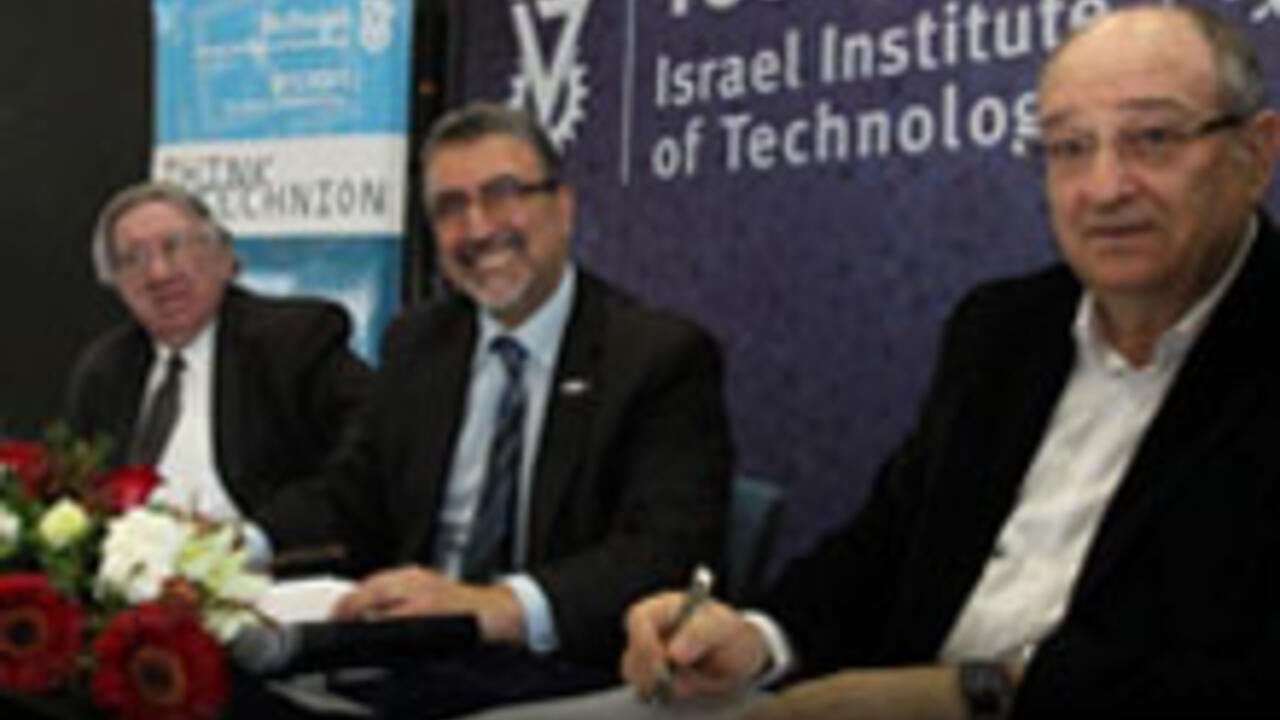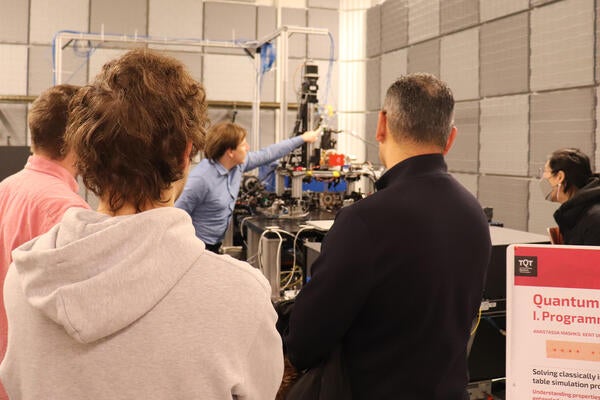
Waterloo, Technion partner to advance research, commercialization
Waterloo delegation travels to Israel for conference focused on quantum information science, nanotechnology and water research

Waterloo delegation travels to Israel for conference focused on quantum information science, nanotechnology and water research
By Staff Marketing and Strategic CommunicationsTwo of the world’s top innovation universities hope to accelerate breakthroughs in research and commercialization with a new agreement signed during a joint conference in Israel on March 18.
The agreement between the University of Waterloo and Technion-Israel Institute of Technology brings together some of the top minds in quantum information science, nanotechnology and water for pure and applied research. Research in these important areas has the potential to:
· improve human health
· transform the ways we share and store information, and
· create new materials and technologies.

George Dixon, Vice-President of Research, University of Waterloo; Feridun Hamdullahpur, President and Vice-Chancellor, University of Waterloo; and Peretz Lavie, President and Vice-President of Research, Oded Shmueli
“As two of the world’s top innovation universities, the University of Waterloo and Technion are natural partners,” said Feridun Hamdullahpur, president and vice-chancellor of the University of Waterloo. “This partnership positions both Waterloo and Technion for accelerated progress in the key areas of quantum information science, nanotechnology, and water. These disciplines will help to shape the future of communities, industries, and everyday life.”
The new partnership agreement will connect students and faculty from both institutions with global markets through technology transfer and commercialization opportunities with industrial partners in Canada and in Israel.
“The agreement between the University of Waterloo and Technion will lead to joint research projects between Israeli and Canadian scientists in areas crucial for making our world a better place,” said Peretz Lavie, president of Technion. “I could not think of a better partner for such projects than the University of Waterloo.”
A joint research conference in Israel to mark the signing featured presentations by some of the world’s top researchers, including Raymond Laflamme, executive director of Waterloo’s Institute for Quantum Computing. A former student of Stephen Hawking, Laflamme is now leading the quest to develop the world’s first universal quantum computer.
The conference also featured the work of nanotechnology expert Carolyn Ren whose knowledge of Lab-on-a-Chip Technology has the potential to revolutionize medical diagnosis and treatment by making chemical and biomedical diagnosis faster, easier and less expensive. Canada Research Chair in Groundwater Remediation, David Blowes, also presented on his work to find new and better ways stop or reverse contamination caused by mining operations.
The new research partnership will increase international opportunities for undergraduate, graduate and post-doctoral student research exchanges, along with joint training and education programs, including dual and joint degree programs. The institutions will also collaborate on applied research projects, workshops, seminars and conferences.
Innovation leaders
Each university is a global powerhouse in its own right, with a strong culture of innovation and entrepreneurship. The agreement will build on that, connecting entrepreneurial students and faculty with global markets through technology transfer and commercialization opportunities with industrial partners from both countries.
“This new partnership between two global innovation leaders puts in place the conditions to support research breakthroughs and new opportunities for commercialization on an international scale,” said George Dixon, vice-president of research at Waterloo. “University of Waterloo and Technion have a history of research collaboration going back almost 20 years.”
Both universities will provide seed funding for these collaborative efforts, beginning with the joint conference, held at Technion’s main campus in Haifa, Israel.

Read more
Here are the people and events behind some of this year’s most compelling Waterloo stories

Read more
TQT Quantum Opportunities and Showcase sheds light on quantum research advancements, discoveries and real-world applications

Read more
From a return to in-person celebrations to health and technology breakthroughs, we look back on some of the year’s highlights
The University of Waterloo acknowledges that much of our work takes place on the traditional territory of the Neutral, Anishinaabeg and Haudenosaunee peoples. Our main campus is situated on the Haldimand Tract, the land granted to the Six Nations that includes six miles on each side of the Grand River. Our active work toward reconciliation takes place across our campuses through research, learning, teaching, and community building, and is co-ordinated within the Office of Indigenous Relations.